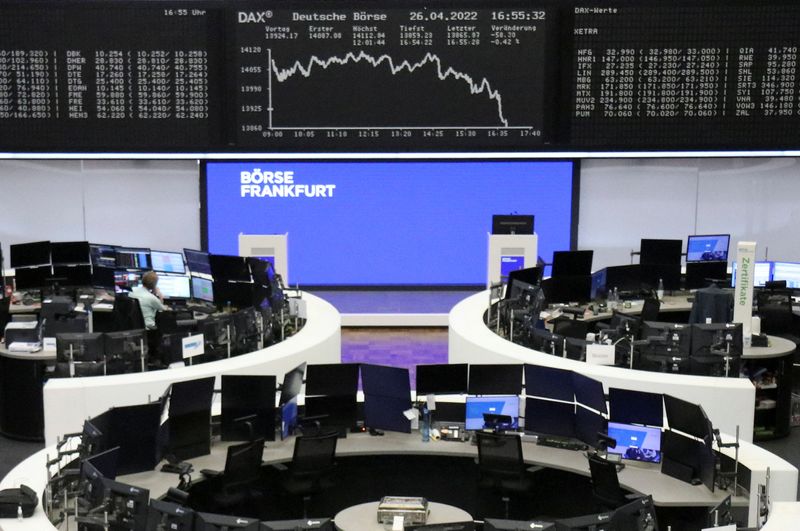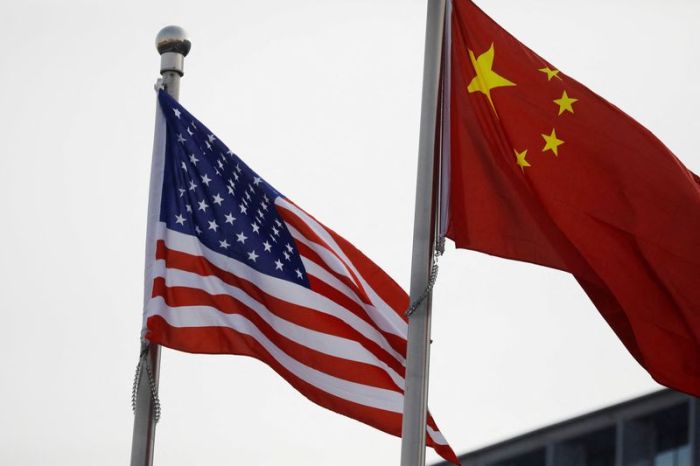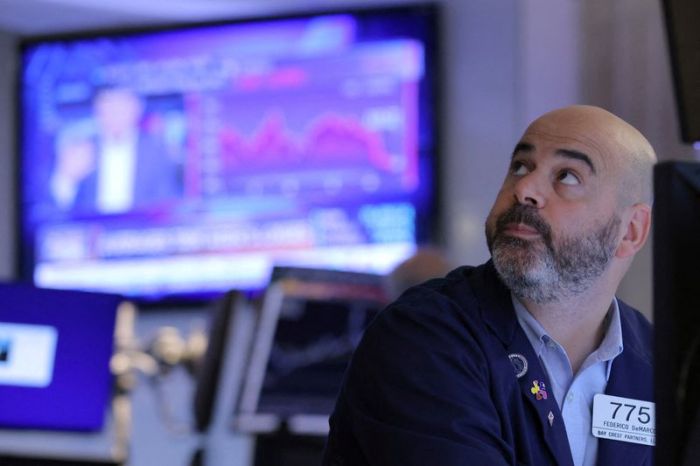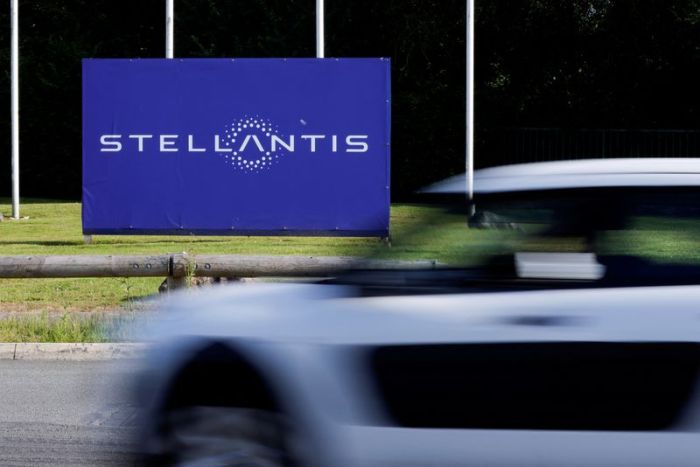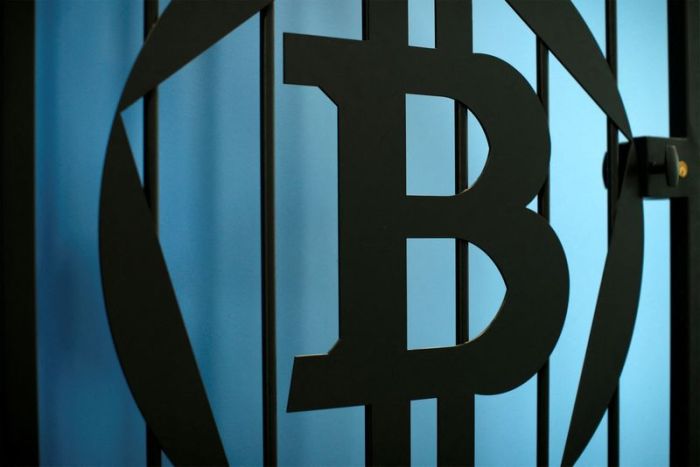NEW YORK/LONDON (Reuters) -Shares slid worldwide on Tuesday as supply chain woes and surging costs hurt corporate earnings and manufacturing output slowed, while Treasury yields dipped as the weakness in equities revived a safe-haven bid for U.S. government debt.
The stock market’s two-day relief rally ended as investors worried about slowing economies. Corporate profit margins have been squeezed, with soaring inflation forcing consumers to cut discretionary spending.
U.S. and euro zone business activity slowed in May. S&P Global attributed the decline in its U.S. Composite PMI Output to “elevated inflationary pressures, a further deterioration in supplier delivery times and weaker demand growth.”
Surging freight and raw material prices led Abercrombie & Fitch Co to say it will face headwinds until at least year-end, a day after Snapchat parent Snap Inc said the U.S. economy worsened faster than expected in April.
The economy likely will slump as the Federal Reserve hikes interest rates to stamp out inflation, said David Petrosinelli, senior trader at InspereX.
“It’s really all about a hard landing and the Fed really being boxed in the corner with only demand-side tools to help,” he said. “They really need to squash demand.”
MSCI’s gauge of stocks across the globe closed down 0.91%. The pan-European STOXX 600 index fell 1.14%.
On Wall Street, the Nasdaq Composite dropped 2.35% and the S&P 500 lost 0.81% as investors turned to defensive positions. But shares pares losses late and the Dow Jones Industrial Average managed to close up 0.15%.
Value shares rose 0.17%, while growth shares fell 1.90%.
Shares of Snap plummeted 43.1%, dragging down several social media and internet stocks. Abercrombie fell 28.6%.
In Europe, all major sectors posted broad declines, with luxury stocks and retailers taking the lead.
European Central Bank Chief Christine Lagarde said she saw the ECB’s deposit rate at zero or “slightly above” by the end of September, implying an increase of at least 50 basis points from its current level as the bank fights inflation.
“It has raised jitters in global markets about the possibility at least of a more aggressive move by the ECB,” said Phil Shaw, chief economist at Investec in London.
“There were reports overnight that some hawks on the governing council thought her comments yesterday seemed to rule out a 50-basis-point hike, but her remarks today appeared to leave that on the table,” he said.
Germany’s 10-year Bund yield fell 9 basis points to 0.959% , and Treasury yields skidded to one-month lows as those on benchmark 10-year Treasury notes > slid 9.8 basis points to 2.761%.
The U.S. dollar index hit nearly a one-month low after Lagarde comments gave the euro a boost.
The dollar index fell 0.362%, with the euro up 0.39% to $1.0731.
Lagarde’s remarks should pressure the U.S. dollar in the short-term after its recent rally to the highest level in two decades, said Bipan Rai, North America head of FX Strategy at CIBC Capital Markets.
But “the broader macro backdrop still supports the risk-off take,” Rai said. “The dollar still has more room to run over the medium term.”
DISAPPOINTING DATA
Markets took some comfort from U.S. President Joe Biden’s comment on Monday that he was considering easing tariffs on China, and from Beijing’s continuing promises of stimulus.
Yet China’s zero-COVID-19 policy and its lockdowns have already done considerable economic damage.
JPMorgan cut its forecast for second-quarter Chinese gross domestic product to a 5.4% contraction from a prior forecast for a 1.5% decline after disappointing data in April. On an annualized basis, its global forecast for the quarter is 0.6%, the weakest since the global financial crisis outside of 2020.
Oil prices traded little changed as tight supply worries offset concerns over a possible recession and China’s COVID-19 curbs.
U.S. crude futures settled down 52 cents at $109.77 a barrel, and Brent rose 14 cents to settle at $113.56.
Gold prices rose to their highest in two weeks as the safe-haven metal’s appeal was lifted by a weaker U.S. dollar and lower Treasury yields.
U.S. gold futures settled up nearly 1% at $1,865.40 an ounce.
Bitcoin last rose 0.99% to $29,371.04.
Asia stock marketshttps://tmsnrt.rs/2zpUAr4Asia-Pacific valuationshttps://tmsnrt.rs/2Dr2BQA
(Reporting by Herbert Lash in New York and Lawrence White in London; additional reporting by Wayne Cole in Sydney; editing by Simon Cameron-Moore, Jonathan Oatis, Tomasz Janowski and David Gregorio)

